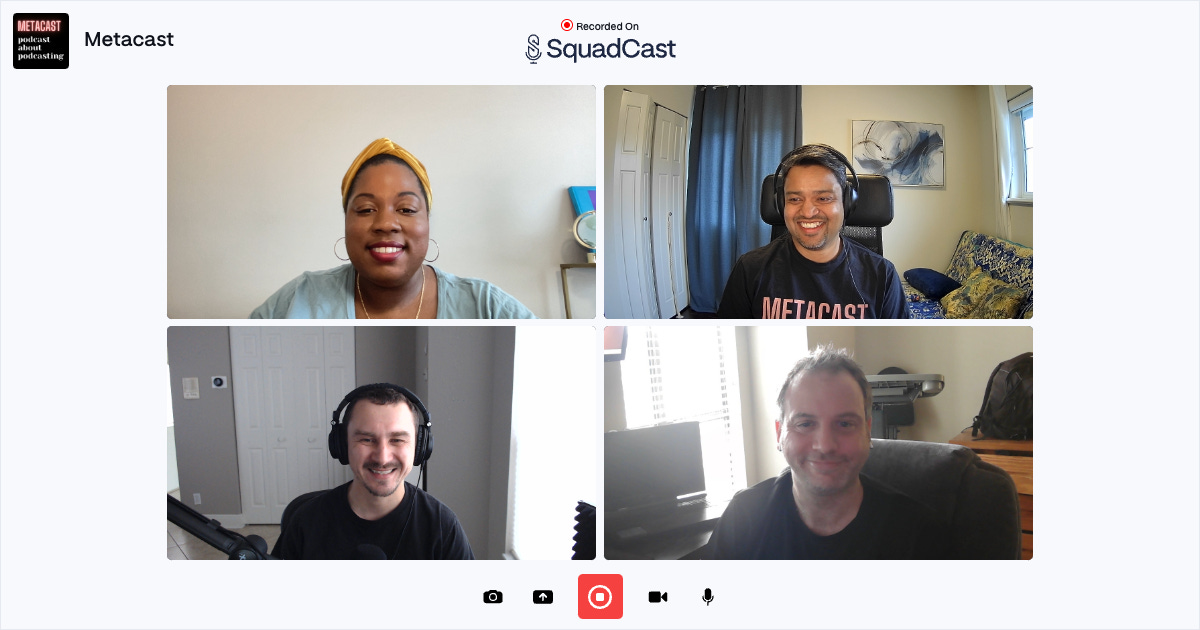Ep. 16 - Women Who Code and Record Podcasts
An Interview with Women Who Code's Communications Team
👉 Listen to Metacast: Apple, Spotify, YouTube
We sat down with Kimberly Jacobs and JL Lewitin who run the Women Who Code Podcast inside the Women Who Code organization, a network of 300k women in tech.
This was our first experience of talking to a podcast team that’s actually a team, not a couple of folks doing everything themselves between their full-time jobs and a hobbies. WWC has multiple teams that do audio/video production, transcriptions, graphics, social media, etc. It’s a machine that cranks out content.
And their content strategy is set a year in advance! We operate Metacast very differently and sometimes scramble in a matter of days to get an episode out. Not to say we want to run our podcast differently but it was great to take a peek into a different production process indeed!
We spent the first 20 minutes talking about women in tech, some of the challenges they face, and how Women Who Code helps them be more effective in the industry that has historically been mostly male.
The insight that I gleaned from the conversation is that women tend to read job postings differently. They expect that they need to meet all qualifications listed in the posting whereas probably half of those are nice-to-have and aren’t strictly required. Men, on the other hand, will not think twice before applying for a job where they don’t meet all of the listed qualifications.
This brings an interesting challenge for those of us who write job posts — we need to make sure that we clearly delineate what’s required and what is nice to have. Maybe we shouldn’t even mention the nice-to-haves to avoid scaring away people from jobs that might not ever require one of those “preferred” qualifications.
Key takeaways
There’s no size that fits all. WWC run their podcast very differently from ours. We got a glimpse into the process of running a podcast within a large organization. When we grow big and actually have a budget for the podcast, we will probably borrow something from their playbook.
It takes 4-6 weeks to publish an episode due to handoffs between different teams (audio/video editing, graphics, transcriptions, etc.) who handle different parts of the process.
WWC communications team helps first-time podcast hosts come up with questions and the flow that will be right for the topics that they need to cover. This makes it easy for an experience that is probably considered by many as terrifying (recording a podcast? with a camera on? omg!)
WWC podcast programming is aligned with the rest of the communication that the organization is doing. The editorial calendar for 2023 was finalized in December 2022! Though they still have room for adjusting the schedule in case of some unexpected macro events (e.g. ChatGPT conquering the world).
When recording with execs from large companies, WWC sometimes even invites PR of those companies to join the recording to make sure things get said correctly. I heard people on another podcast say that they never allow any editorial intervention or PR for their guests, so, again, no size fits all.
WWC asks guests for their consent to publish content as a PDF in DocuSign. We do this over email but when stakes get higher, we can try doing the same.
Where to find WWC, Kimberly and JL
Show notes
Podcasts
Software
Post-production
This episode was produced by Mike Semashko
Get in touch
We’d love to hear from you! Arnab is a Twitter guy and I’m on Instagram. Use the method that works best for you!
Email: hello@metacastpodcast.com (both of us get it)
Arnab’s Twitter: @or9ob
You can also leave comments on this substack post. Don’t forget to subscribe if you haven’t already!
Bye for now.


